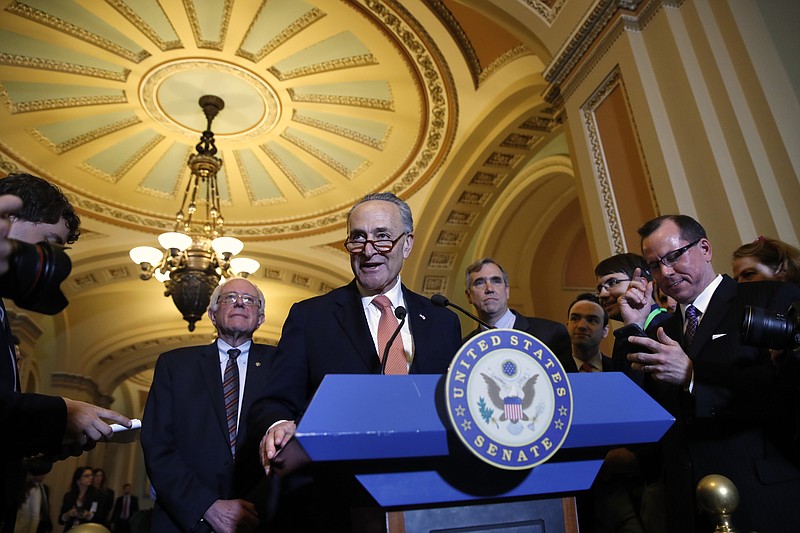WASHINGTON (AP) - The Latest on Congressional Republican efforts to replace the health care law (all times local):
12:05 p.m.
Senate leaders are positioning themselves for a Congressional Budget Office report that will assess the impact the House-approved health care bill would have on insurance coverage and consumers' costs.
Senate Majority Leader Mitch McConnell says that whatever the report shows, it's unacceptable to retain former President Barack Obama's health care law. The Kentucky Republican calls that statute "unsustainable."
New York Democrat Chuck Schumer is Senate minority leader. He says the report will likely show "the same grave consequences" as earlier analyses by the nonpartisan budget office. Those found that earlier versions of the House bill left 24 million additional people uninsured and drove up out-of-pocket costs for many seniors and others.
Wednesday's projections will serve as starting points for Senate Republicans writing their own health care bill.
___
5 a.m.
The Congressional Budget Office plans to release its estimate Wednesday of what impact the Republican House-passed health care bill would have on coverage and premiums.
The report could give talking points to House Republicans for their bill, or to Democrats who voted unanimously against it.
For GOP senators holding private meetings to sketch out their own legislation, the report's figures could serve as a starting point as they consider changing the House's Medicaid cuts, tax credits and other policies.
In previous reports on earlier versions of the bill, the nonpartisan budget office concluded the legislation would increase the number of uninsured Americans by 24 million over a decade.
